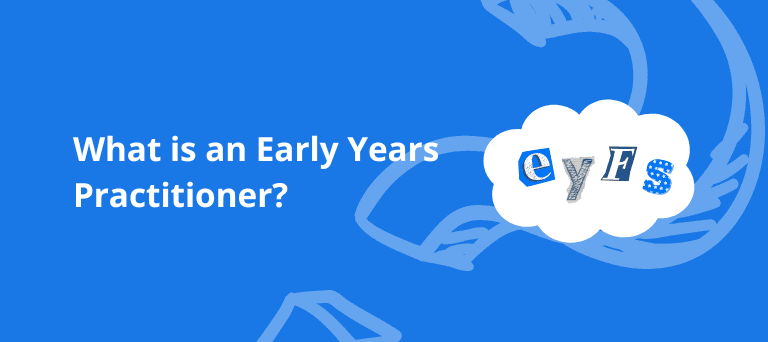Zen Educate Content Team
26 Mar 2024
5
min read

The Early Years Foundation Stage (EYFS) framework is a crucial foundation in early childhood education, providing a structured approach to learning and development for children from birth to five years old. Within the EYFS, there is a wide range of job opportunities available for individuals passionate about working with young children. These roles play a vital role in shaping the educational journey of children during their early years.
Understanding EYFS Roles
Early Years Teacher Jobs
One of the key roles in the EYFS is that of an Early Years Teacher. These professionals are responsible for providing high-quality education and care to young children. They create a nurturing and stimulating environment that supports children's learning and development. Early Years Teachers work with children aged three to five years old, preparing them for their transition to primary school.
To become an Early Years Teacher, individuals must hold a degree in early childhood education or a related field. They also need to obtain Early Years Teacher Status (EYTS) or QTS (Qualified Teacher Status) through an accredited training program.
Early Years Educator Jobs
Early Years Educators are essential members of the early years team, providing support to teachers/room leaders and ensuring the smooth running of the setting. They work closely with children aged 0 to 5 years old, assisting with personal care, supervision, and key children.
To become an Early Years Educator, individuals can complete a Level 2 or Level 3 (or 4, 5, 6 and 7!) childcare qualification, such as a Level 3 Diploma for the Early Years Workforce, or a BA in Early Childhood Studies. These qualifications provide the necessary knowledge and skills to support children's learning and development.
Qualifications and Training
Qualifications for Early Years Practitioners vary depending on the specific role and the region in which individuals wish to work. It is essential to have the appropriate qualifications to ensure the highest quality of care and education for young children.
For Early Years Teachers, a degree in early childhood education or a related field is typically required. This degree provides individuals with a deep understanding of child development, educational theories, and pedagogical practices. Additionally, Early Years Teachers must obtain Early Years Teacher Status (EYTS) or Qualified Teacher Status (QTS) through an accredited training program.
For Early Years Practitioners, a Level 2 or Level 3 childcare qualification is often required. These qualifications provide individuals with the necessary knowledge and skills to support children's learning and development. Examples of such qualifications include the Level 3 Diploma for the Early Years Workforce or Level 2 Certificate for the Children & Young People's Workforce.
Continuing Professional Development (CPD) is crucial for nursery professionals to stay up-to-date with the latest research, best practices, and educational developments. CPD opportunities can include attending workshops, conferences, and training courses specific to early childhood education. By continually developing their skills and knowledge, EYFS professionals can enhance their practice and provide the best possible support to young children.
Job Descriptions and Responsibilities
Early Years Teacher
As an Early Years Teacher, individuals play a crucial role in preparing children for their transition to primary school. Their main duties and responsibilities include:
Planning and delivering a broad and balanced curriculum: Early Years Teachers create engaging and developmentally appropriate learning experiences that cover all areas of the Early Years Foundation Stage (EYFS) curriculum, including communication and language, physical development, and personal, social, and emotional development.
Assessing children's progress and providing feedback: Through ongoing assessment and observation, Early Years Teachers track children's development, identifying individual strengths and areas for further support. They provide feedback to parents, ensuring a collaborative approach to each child's learning journey.
Collaborating with parents and professionals: Early Years Teachers work closely with parents and other professionals, such as teaching assistants and support staff, to ensure consistent and holistic support for children's development. They share information, provide guidance, and create opportunities for parents to be actively involved in their child's learning.
Creating a stimulating and inclusive learning environment: Early Years Teachers design and set up the physical environment to promote exploration, curiosity, and independent learning. They provide a range of resources and materials that cater to children's individual interests and needs.
Differentiating instruction: Early Years Teachers employ a range of teaching strategies and resources to meet the diverse needs and abilities of all children in their care. They adapt their approach, providing additional support or challenge as required.
Promoting language and communication skills: Early Years Teachers focus on developing children's communication and language skills, providing rich and varied opportunities for speaking, listening, and early literacy experiences.
Supporting children's well-being and social development: Early Years Teachers foster positive relationships with children, supporting their emotional well-being and social skills development. They create a caring and inclusive classroom community where children feel safe, valued, and supported.
Early Years Assistant
A key aspect of Early Years Assistant roles is personal care. This involved feeding, toileting, changing nappies, assisting with medical needs, and ensuring the health and wellbeing of each child.
Finding EYFS Jobs
Websites such as Indeed and teaching agencies advertise early years job opportunities – but you won't find the same level of personal development, genuine support and better pay you'll find with Zen Educate. Sign up here.
Application Tips
Tailor your CV and cover letter: Highlight your relevant qualifications, experience, and skills in your CV and cover letter. Customise each application to the specific role and setting you are applying for.
Look to our guide on CV designs for some quick and easy ways to make your CV stand out from the crowd.
Showcase your passion for early years education: Use your application to demonstrate your genuine enthusiasm for working with young children and your commitment to their development and well-being.
Provide references: Include references from previous employers or managers who can vouch for your skills and professionalism. Positive references are essential to your application and give potential employers confidence in your abilities.
Interview Preparation
Full article: Preparing for an Early Years Interview
Research the setting: Familiarise yourself with the early years setting you are interviewing for. Understand their ethos, values, and approach to early childhood education. This will demonstrate your genuine interest and commitment during the interview.
Prepare for common interview questions: Anticipate questions related to your experience working with young children, your knowledge of the EYFS framework, and your approach to supporting children's learning and development. Practice your responses to ensure you can articulate your ideas clearly and confidently. These questions will likely revolve around behaviour, SEN, previous duties, personal care, and safeguarding.
Showcase your skills and experience: Use specific examples from your previous work or training to highlight your skills, knowledge, and achievements in early years education. Discuss how you have supported children's learning and development in practical ways.
By following these tips and being proactive in your job search, you can increase your chances of finding and securing a rewarding early years position.
Career Opportunities and Pathways
Working in the field of early years education provides numerous opportunities for career growth and advancement. As an EYFS professional, you can explore various career pathways within the early years sector. Here are some potential avenues to consider:
Leadership roles: With experience and further qualifications, EYFS professionals can progress into leadership positions, such as Early Years Coordinator, Manager, or Head of Department. These roles involve overseeing the overall operation of an early years setting, leading a team of educators, and ensuring the delivery of high-quality care and education.
Further qualifications in early years education: EYFS professionals can pursue higher education qualifications in early years or related subjects. These qualifications, such as foundation degrees or bachelor's degrees, provide a deeper understanding of early childhood education theory, research, and pedagogy. They can open up opportunities for advanced roles, such as early years consultants or researchers.
Jobs beyond teaching: EYFS professionals can explore alternative career paths within the field of early childhood education that are not directly teaching roles. These can include roles in curriculum development, policy-making, educational publishing, or working for early years charities and organisations.
It's important to continually seek professional development opportunities, such as attending conferences and workshops, to stay informed about the latest trends and research in early years education. By continuously expanding your knowledge and skills, you can enhance your practice and progress within your chosen career pathway.
Working Conditions and Benefits
Working in early years education offers a range of benefits and rewards. Here are some key aspects of the working conditions and benefits in the field:
Flexibility: Early years settings often offer flexible working arrangements, including part-time and full-time positions. This flexibility can be particularly beneficial for individuals with other commitments, such as caring for their own children or pursuing further education.
Job satisfaction: Working with young children and witnessing their growth and development can be incredibly rewarding. Early years professionals have the opportunity to make a positive and lasting impact on children's lives, fostering a love for learning and supporting their overall well-being.
Collaborative environment: Early years settings typically operate as a team, with educators, support staff, and parents working together to create a nurturing and inclusive learning environment. Collaboration and teamwork are key components of the early years profession.
Professional development opportunities: Early years professionals have access to a wide range of professional development opportunities, including training courses, workshops, and conferences. These opportunities enable continuous learning and growth, enhancing professional practice.
Supportive community: The early years community is known for its supportive and collaborative nature. Educators often have opportunities to connect with other professionals, share ideas, and seek guidance from experienced colleagues.
It's important to consider the specific benefits and working conditions offered by individual early years settings, as these can vary. When considering job opportunities, carefully review the package offered, including salary, benefits, and opportunities for professional development.
Conclusion
Early years practitioners play a vital role in shaping the educational journey of young children. Their dedication and commitment to providing high-quality care and education create a solid foundation for children's future learning and development. The range of roles available within the EYFS framework offers diverse opportunities for individuals passionate about working with young children. By choosing a career in early years education, individuals can make a positive impact on the lives of children and contribute to their overall well-being and success.
Whether pursuing a career as an Early Years Teacher, nursery teacher, or early years educator, each role is essential in supporting children's learning, development, and happiness during their early years. With the right qualifications, ongoing professional development, and a passion for early childhood education, individuals can embark on a fulfilling and rewarding career in the field of early years.



